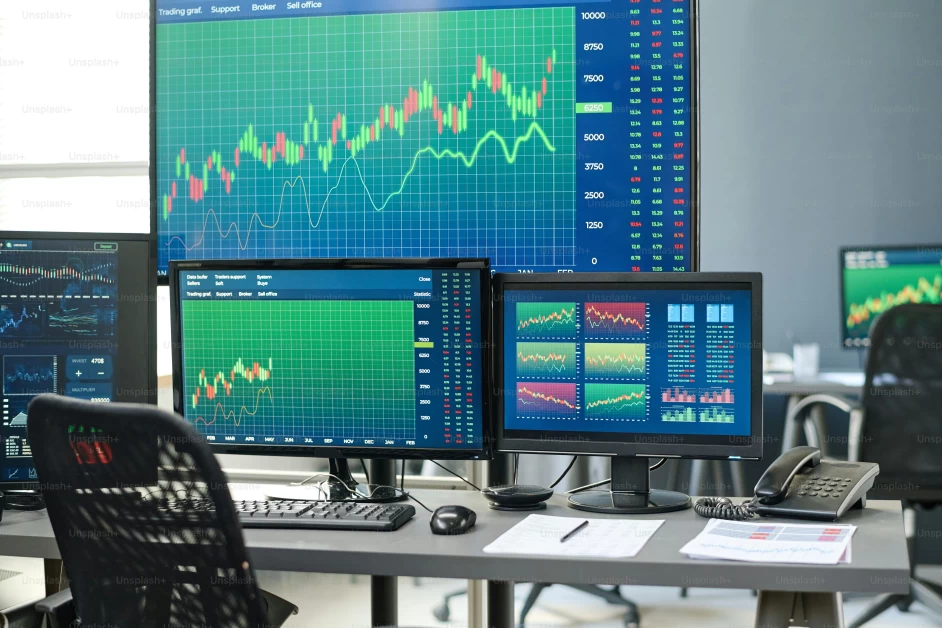Table of Contents
Cryptocurrency exchanges play a crucial role in facilitating the trading of cryptocurrencies and other digital assets. These platforms serve as intermediaries between buyers and sellers, allowing users to invest in and trade various cryptocurrencies. In recent years, the rise of decentralized exchanges (DEX) has become a significant trend in the crypto industry. Decentralized exchanges operate on blockchain networks and offer users greater control over their funds. This article will explore the future of crypto exchanges, focusing on the dominance of DEX, exchange interoperability, the integration of decentralized finance protocols, the emergence of NFT marketplaces, and innovations reshaping the crypto industry.
Dominance of DEX: How is it going to shape the future?
Decentralized exchanges have gained significant traction in the crypto industry due to their ability to address key concerns associated with centralized exchanges. By operating on blockchain networks, DEX eliminate the need for a central governing authority, allowing users to have complete control over their funds. Ethereum and similar blockchain networks have played a crucial role in strengthening decentralized finance (DeFi) and contributing to the growth of DEX. As a result, DEX are expected to continue as the popular choice for crypto trading. Let’s take a look at some of the top decentralized crypto exchanges:
- Uniswap (v3)
- dYdX
- Curve Finance
These exchanges have been selected based on factors such as trading volumes, traffic, and liquidity. However, there are several other DEX in the market, including DODO, Kine protocol, Uniswap (V2), PancakeSwap (v2), and more.
Exchange Interoperability
In the near future, crypto exchanges are expected to achieve interoperability, allowing them to operate as an interconnected ecosystem. This interconnection between exchanges will enable quicker and seamless transactions, providing users with a more efficient trading experience. Additionally, this interoperability will help reduce transaction costs, further enhancing the user experience.
Decentralized Finance Protocols
Decentralized finance (DeFi) has had a significant impact on the crypto industry, with many exchanges integrating DeFi protocols into their platforms. This integration has allowed users to directly participate in borrowing, lending, and yield farming, making DeFi an integral part of the industry. The integration of DeFi protocols in the crypto realm will make the financial ecosystem more user-centric and comprehensive, offering users a wider range of financial services.
NFT Marketplaces are the New Stars
Non-fungible tokens (NFTs) have gained immense popularity in recent years. NFTs are unique digital assets recorded on the blockchain, representing and certifying authenticity and ownership. Previously, NFTs were only traded on dedicated NFT marketplaces. However, this is expected to change as NFT marketplaces begin to appear within crypto exchanges. This integration will provide users with a more seamless experience, allowing them to trade both cryptocurrencies and NFTs on a single platform.
Innovations That Reshape Crypto Exchanges
The world of technology and innovation is constantly evolving, and the crypto industry is no exception. The growth of artificial intelligence (AI) and machine learning integration is expected to play a significant role in shaping the future of crypto exchanges. These technologies can enhance the efficiency and accuracy of trading processes, improving the overall user experience. Additionally, the introduction of Web 3.0 technologies will usher in a new era of internet applications, with a focus on user-centric functioning in a decentralized manner.
It is also worth noting that the tokenization of assets is not limited to cryptocurrencies. In the future, traditional assets such as stocks, commodities, and even real estate are expected to be traded on blockchain exchanges. This expansion of asset tokenization will further contribute to the growth and prominence of crypto exchanges.
Conclusion
The future of crypto exchanges is bright, with ongoing technological developments and innovations driving the growth of the industry. Decentralized exchanges are gaining dominance, offering users greater control over their funds and a more secure trading environment. Interoperability among exchanges will enhance efficiency and provide users with a seamless trading experience. The integration of DeFi protocols and the emergence of NFT marketplaces within crypto exchanges will expand the range of financial services available to users. Innovations such as AI and machine learning integration will further improve the efficiency of trading processes. The tokenization of traditional assets will also contribute to the growth of crypto exchanges. Despite potential challenges, the crypto industry presents significant opportunities for collaboration and growth in the future.
Disclaimer: This article is for informational purposes only and should not be considered financial or investment advice. Always do your own research before making any investment decisions.







